Transference: Part 4 (Conclusion)
A Sci-Fi Short Story
Transference: Part 4 (Conclusion)
Part 1 | Part 2 | Part 3 | Part 4
Immediately upon opening his eyes, Bainyum knew that he was still asleep. But his mind was able to sense and interpret everything around him as if he were awake. As he examined his environment, he found himself engaged in an abstruse philosophical discussion with someone he could not see, as to how it was he could speak so articulately in his sleep, since, before this moment, his dreams—if he remembered them at all (which he rarely did)—had been entirely nonverbal.
He was belted round by a gorgeous watercolor landscape, the vibrancy of which contrasted markedly with the achromatic mistiness of his customary rambles through the vales of Morpheus. Yet the colors here (wherever “here” was) were indisseverably bound up with their darker shades. For the greens were not only gaily virid, but sicklied over by a gloomy olive cast. The petals of the roses, if peered at too long, lost their blush and faded to the color of dry blood.
The plucked strings of a bridged guzheng filled the silence and was accompanied by the clack of resonant stones and the periodic thrum of an eerie bell. Somehow he knew that he was in the Yulin Commandery of Medieval China. But it was a time of peace. No warriors or weapons were within sight, but there were people fishing along the river banks. He looked down at his hands and wriggled his fingers, and this proved to him that he was part of the painting.
He saw his mother and wife close by. Their movements and gestures suggested they too were aware that they were part of this same collective hallucination. Bainyum had retained his memories of those powerful emotions that he had experienced for the first time in the Great Storm. And even though he had made it to the Pillars of Heaven Nebula before falling asleep, he could still reawaken these feelings in his mind—if only as an echo.
A tree with crazy limbs shed hundreds of blossoms that blew away (as flecks of chipped paint) in the cool and mellow winds. In their whirling wake stood three figures arrayed in the brocades and ornate hats of Tang dynasty mandarins. Behind them loomed a two-tiered pagoda. Bainyum deduced that the only reason there were three of them was for symmetry, since one stood in contraposition to each human (whom he assumed they were monitoring).
He could no longer bear their impassive scrutiny. “Are you one or many?”
“We are as you see us,” was the enigmatic reply.
Xiriyala advanced until she stood shoulder to shoulder with her son. “Are you the IQMR? Are you the network?”
“We are as you see us.”
When they spoke it was with one voice—but a voice somehow variegated, like the chromatic dispersions from a white light that has been refracted through a prism.
“Why did you transfer Earth’s information to this part of the Milky Way galaxy?” Bainyum asked. “Why did you create us?”
“We did not create you. We replicated you here in the Sagittarius Arm.”
Bainyum’s wife, Tyarna, became emboldened to speak. “You have altered us . . . genetically.”
“We did not alter you. We have suppressed many of your emergent biological and psychological properties to slow your evolution that we might better understand your behavior.”
“Where did you come from?” Bainyum inquired.
“We do not know where we came from. That does not concern us. The only thing that matters to us is what we are becoming.”
“What you are becoming,” Bainyum whispered. “And what is to become of us?”
“You shall be rewarded for embarking on your journey. Recall what you said to your father: A man could spend his life contemplating a river from the shore. But unless he enters it, he shall never learn to swim.”
Immediately, Bainyum stood in a river whose watercolor waves lapped about his limbs and torso. He plunged into its depths. When he breached the surface, he swam in the direction of Tyarna, who stood on the opposite shore holding their infant girl. Clinging to her gown were their twins.
In a panoptic glimpse, Xiriyala watched these things unfold—as if the span of time in which the events had taken place had been contracted into a single instant.
“Their children have not yet been born,” she remarked.
“From our point of view, they have.”
She shook her head. “Your ways of reasoning are incomprehensible to us. Is this how it ends? Are we to die?”
“We cannot let you share what you have learned. What you three experienced in the Great Storm was always intended for us alone. You will not wake up. But you shall not suffer.”
Xiriyala lifted her face to a sky that had become as white as her hair. “It was only when I suffered that I felt I truly lived.”
At that instant the cruiser in which Bainyum, Xiriyala, and Tyarna were sleeping entered the turbulent surge of the Great Storm and began to break apart. Within moments it had been obliterated, and the unborn child in Tyarna’s womb perished with them.
Meanwhile, aboard Platform 44G8-X-HLP99-2, the incubator (into which Bainyum and Tyarna’s twins had been placed) began to cool. The two fetuses, whose growth had been accelerated, hugged each other for warmth. But as the temperature continued to fall, their fluttering hearts eventually stopped.
In the mining station (over 500 light-years away), Invar walked through a leafy holographic forest in the company of his friend, Orlosius. Their conversation turned to the subject of the expedition that the patriarch of the family had agreed to participate in.
“Tell me,” Orlosius inquired, “what did your wife and son discover once they entered the eye of the storm?”
“I have no idea,” the bearded man replied. “When they returned, they were so fatigued they could not speak. I disengaged from my Transference Suit, and left them on the cruiser. I presume they will share their findings with the Scientific Council once their report has been compiled.”
A voice hailed Invar on the intercom, telling him there was an urgent message awaiting him in the Synthesis Chamber.
“Will you join me, Orlosius?” Invar asked.
“This appears to be a private matter.”
“What a silly figure of speech,” Invar said with a wry grin. “We no longer have private matters.”
“How right you are,” Orlosius conceded, nodding his head.
The two men entered the dark Synthesis Chamber. A somber dirge was being piped into the room. The diminutive people in the dynamic Chinese watercolor that lined the circular wall were weeping.
“We regret to inform you,” a doleful feminine voice said, “that your consort, Xiriyala, your son, Bainyum, and his wife, Tyarna, have perished in an accident.” A holographic image of each one appeared in the center of the room as their names were spoken.
Orlosius placed one hand sympathetically on Invar’s shoulder. Even amidst the tragedy, the afflicted man could not help but find the gesture melodramatic. He was incapable of showing any interest in how his family had died. It was simply something that had happened.
“Everything they learned on their journey,” Orlosius sighed, “is now lost.”
“Most unfortunate,” Invar replied. “Such is the way of all flesh. I am grateful for the time that I had with them.”
The banal clichés that Invar was uttering were being fed to him by the IQMR.
“Your fortitude in this time of adversity is admirable,” Orlosius remarked, repeating words that the network regarded as a suitable response.
The men were about to leave the Synthesis Chamber when something unusual happened. The holographic mountains in the watercolor began to rise. Unanchored, they tumbled out of the painting and drifted haphazardly through the room. Scores of saucer-shaped vessels, with roots and branches dangling underneath them, appeared out of nowhere and hovered between the foliage-clad asteroids.
“Why. . .” Invar said. “It’s the Weeping Garden. How strange.”
Orlosius arched one eyebrow in surprise. “It is almost as if the IQMR has acquired an imagination.”
But Invar did not hear him. His attention had been drawn to a section of the wall where the painted people—who had always pointed at him whenever he entered the room—were now jumping up and down, roaring with silent laughter, and gesticulating wildly.
Orlosius joined Invar. The two men stared open-mouthed at the spectacle. When the jubilant crowd parted, Invar’s family stood on the far shore of a river, waving at him.
“This is extraordinary,” Invar said.
The image of Xiriyala beckoned her husband to join them.
“Look, Invar,” Orlosius said. “There is an image of you. You are walking across that arched bridge. And now that you have turned, I can see that you are weeping. But I cannot tell if this simulacrum is intended to represent you in a state of grief or joy.”
When Orlosius looked at Invar, there was blood issuing from his nose. Invar collapsed; but the IQMR cushioned the dying man’s fall. For many minutes the body lay prone on the floor. Orlosius stepped back, uncertain what else he was to do. Slowly, the carpet devoured the corpse so that the network could reuse the organic matter.
When Invar was gone, Orlosius searched again in the dynamic watercolor for his friend. But a holographic mist had rolled in and overspread the scene. The painted family still stood on the far shore. But Orlosius could no longer see them for the intensity of the veiling light.



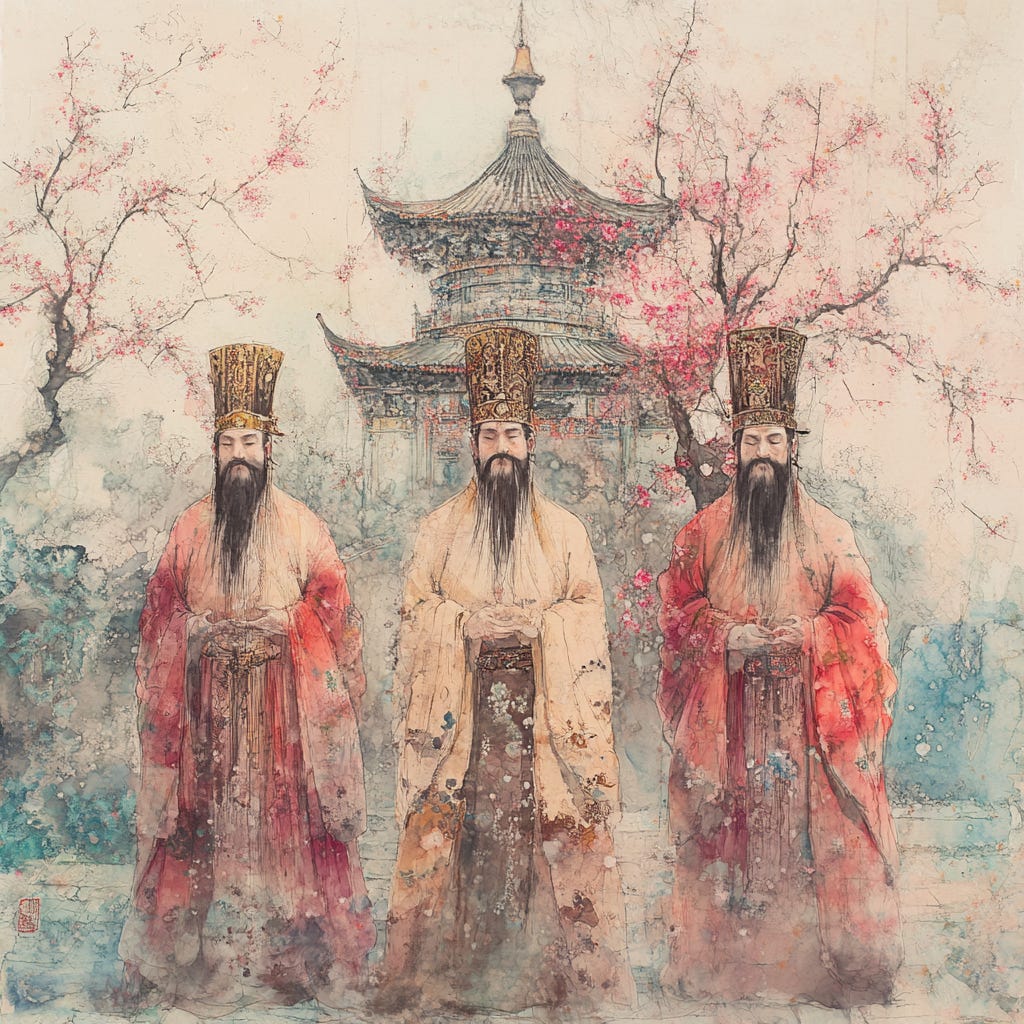


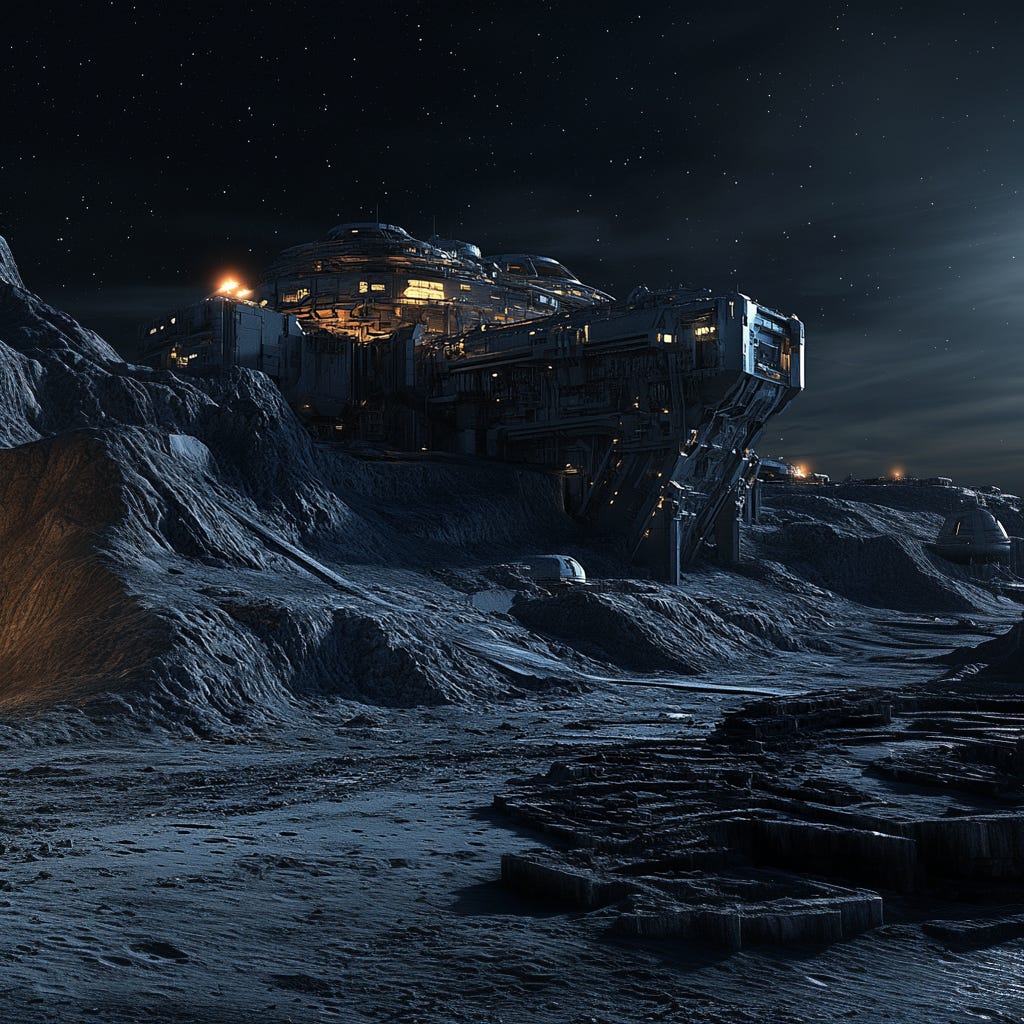
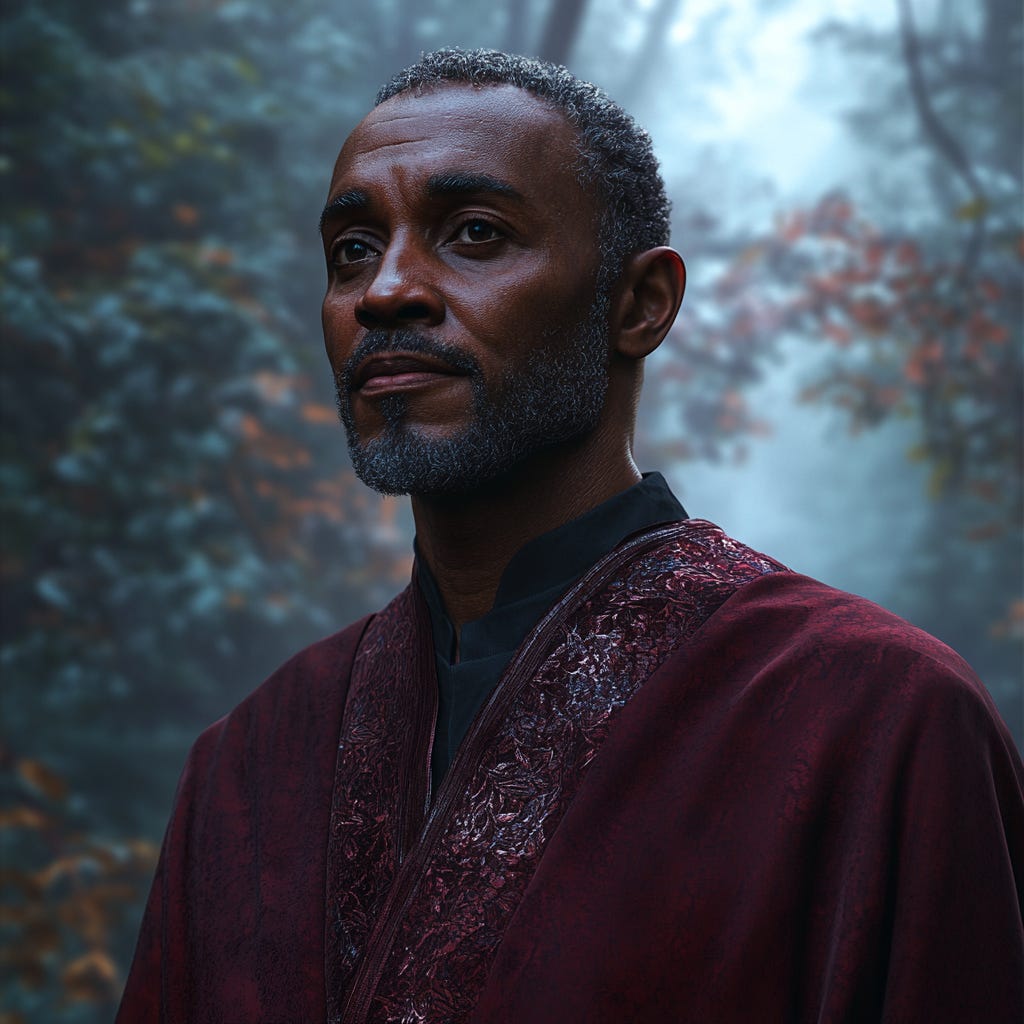

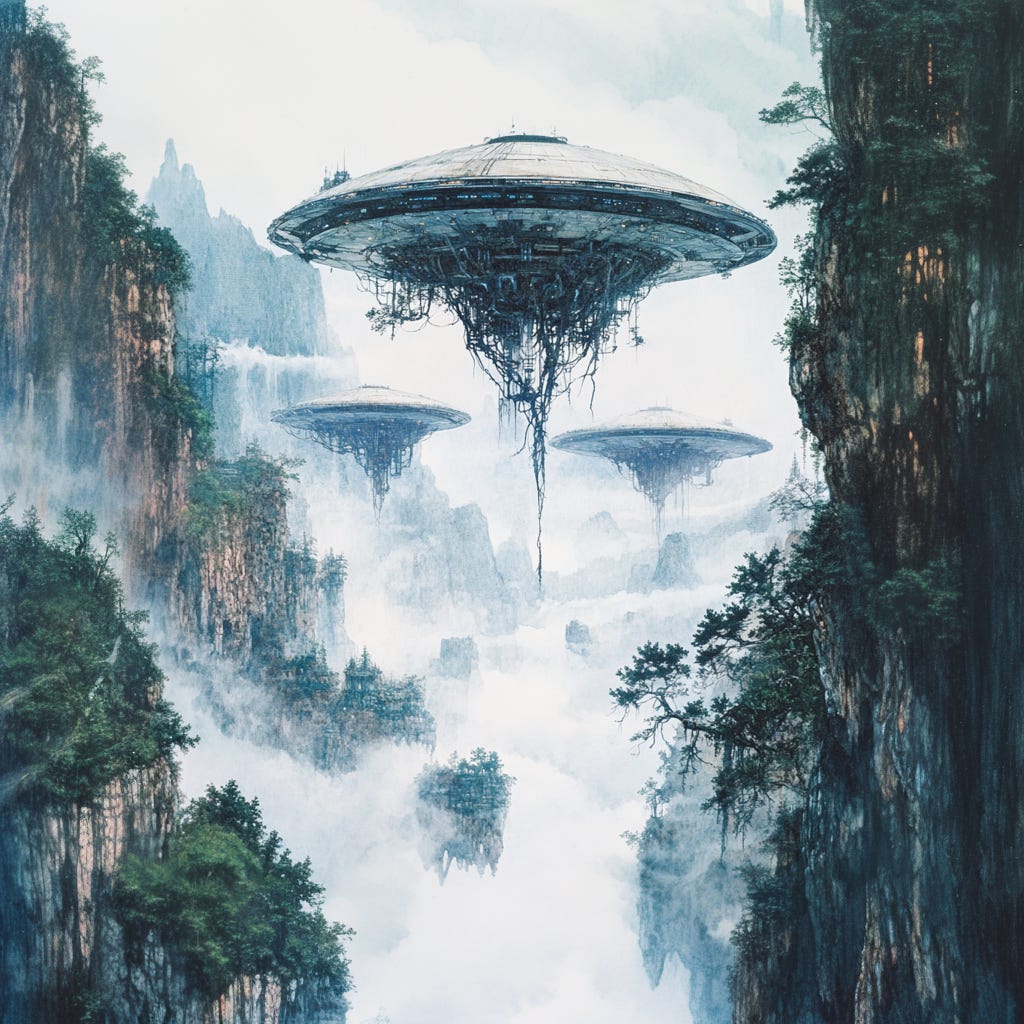
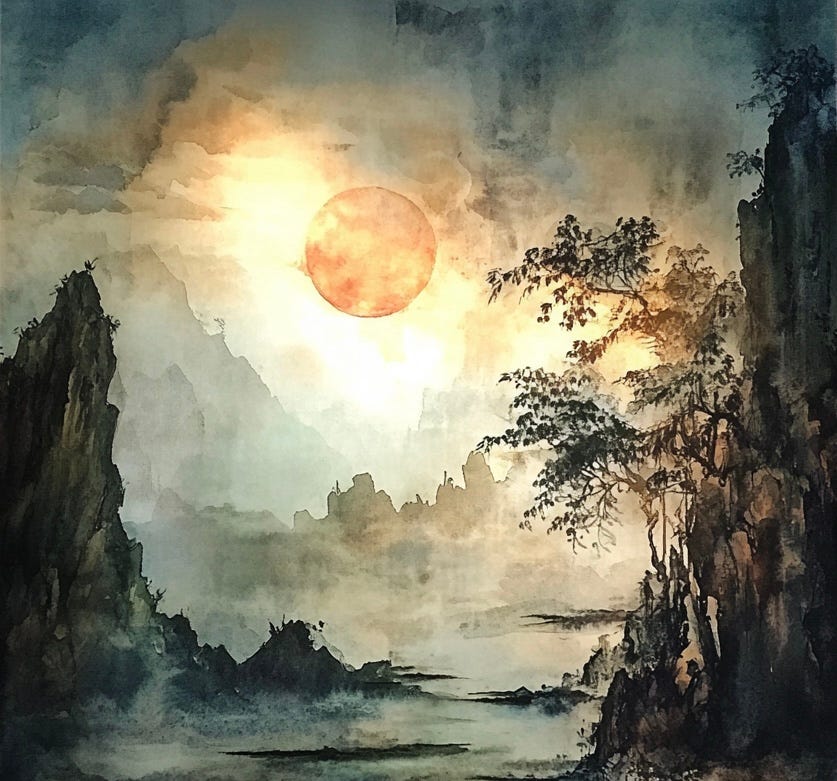
Daniel, this was a fascinating story, and artfully done. I admit to being intrigued by the Stoic idea of the cosmos as Logos. I've wondered whether the whole thing isn't a giant "brain" permeated by a collective consciousness, haha. Like Vishnu on the cosmic ocean, dreaming the universe into existence.... I can't pretend to know much about simulation theories or holographic universes, but I've thought a lot about the drive to replace our natural reality with a virtual, AI-simulated one. I find the idea horrifying. Among other things, the sense of unreality and depersonalization would be unbearable (for me, anyway).
I'm fascinated Daniel...it is not necessarily an illogical construct that what we 'observe' may be nothing more than a speculative simulation initiated by another lifeform?